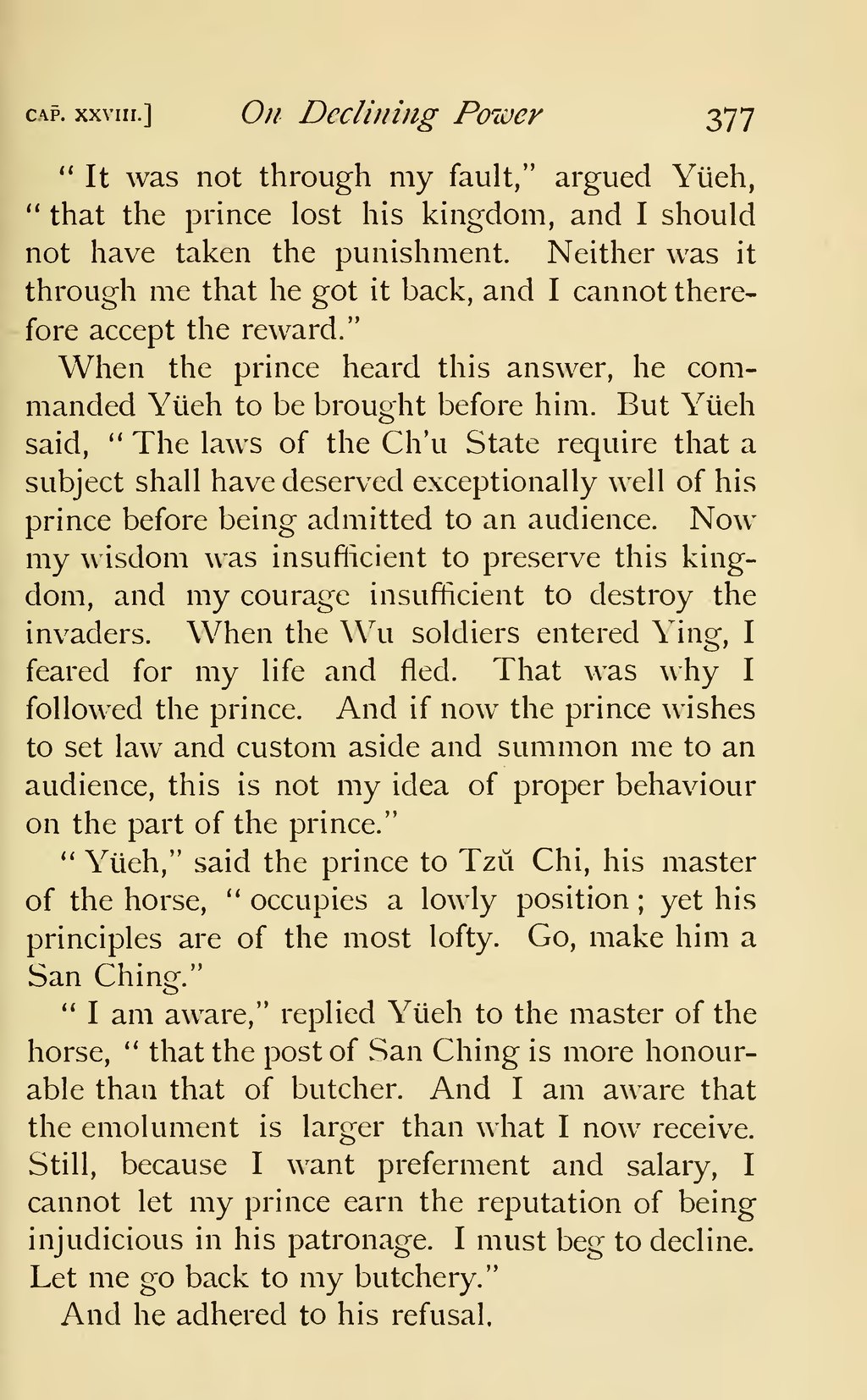"It was not through my fault," argued Yüeh, "that the prince lost his kingdom, and I should not have taken the punishment. Neither was it through me that he got it back, and I cannot therefore accept the reward."
When the prince heard this answer, he commanded Yüeh to be brought before him. But Yüeh said, "The laws of the Ch'u State require that a subject shall have deserved exceptionally well of his prince before being admitted to an audience. Now my wisdom was insufficient to preserve this kingdom, and my courage insufficient to destroy the invaders. When the Wu soldiers entered Ying, I feared for my life and fled. That was why I followed the prince. And if now the prince wishes to set law and custom aside and summon me to an audience, this is not my idea of proper behaviour on the part of the prince."
"Yüeh," said the prince to Tzŭ Chi, his master of the horse, "occupies a lowly position; yet his principles are of the most lofty. Go, make him a San Ching."
"I am aware," replied Yüeh to the master of the horse, "that the post of San Ching is more honourable than that of butcher. And I am aware that the emolument is larger than what I now receive. Still, because I want preferment and salary, I cannot let my prince earn the reputation of being injudicious in his patronage. I must beg to decline. Let me go back to my butchery."
And he adhered to his refusal.

